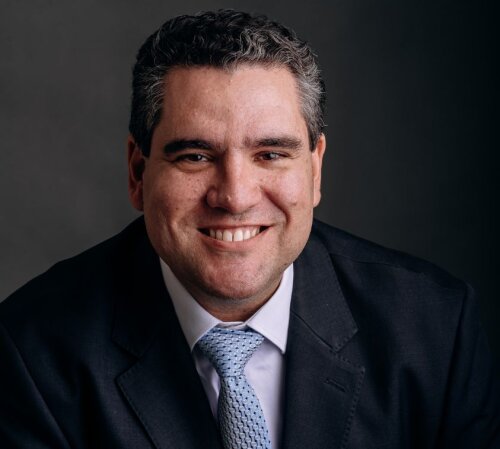Best Divorce & Separation Lawyers in Praia Grande
Share your needs with us, get contacted by law firms.
Free. Takes 2 min.
Free Guide to Hiring a Family Lawyer
List of the best lawyers in Praia Grande, Brazil
About Divorce & Separation Law in Praia Grande, Brazil
Divorce and separation law in Praia Grande, Brazil, is governed by federal legislation under the Brazilian Civil Code and the Constitution, with specific local processes handled by the courts of the State of São Paulo. Divorce formally dissolves a civil marriage, allowing both parties the legal right to remarry, whereas separation simply suspends marital obligations without terminating the marriage bond. Praia Grande residents facing marital breakdown can seek either judicial or extrajudicial divorces, and both amicable and contentious cases are addressed. Divorce law also encompasses matters relating to child custody, property division, child and spousal support, and visitation rights.
Why You May Need a Lawyer
There are several situations where seeking legal assistance is highly recommended in divorce and separation matters. If you and your spouse disagree on key issues, such as asset division, child custody, or alimony, a lawyer can advocate for your interests and ensure your rights are upheld. Even in uncontested divorces, a lawyer can help draft and review agreements to prevent future disputes. Legal support is especially crucial in cases involving domestic violence, international aspects (such as foreign spouses or assets), complex financial arrangements, or disputes about parenting responsibilities. A lawyer's expertise is vital in navigating court procedures, ensuring compliance with local regulations, and helping clients achieve fair and lasting outcomes.
Local Laws Overview
Divorce and separation in Praia Grande are subject to the Civil Code of Brazil and the Código de Processo Civil (Civil Procedure Code), with implementation through the judicial system of São Paulo. Both judicial divorce (through the courts) and extrajudicial divorce (via public notaries) are available. Extrajudicial divorce is permitted for couples without minor children or dependent adults, provided both parties agree and are legally assisted by a lawyer. For cases involving minors, disagreement, or complex assets, judicial proceedings are required.
Key aspects of local law include:
- Mandatory legal representation for divorce, even in amicable situations.
- Property division according to the chosen marital regime (partial community property is default for marriages after 1977).
- Child custody decisions based on the best interests of the child, with shared custody now preferred as a general rule.
- Child and spousal support (alimentos) can be ordered for a fair and adequate support of dependents.
- Domestic violence protections, including expedited protective orders for at-risk parties.
Frequently Asked Questions
What is the difference between divorce and legal separation in Brazil?
Divorce ends the marriage and allows parties to remarry. Legal separation suspends marital obligations but does not dissolve the marriage, so remarriage is not possible until divorce is finalized.
Can I get a divorce if my spouse does not agree?
Yes, Brazilian law allows unilateral divorce, meaning you do not need your spouse's consent. If they disagree, the court will decide on unresolved matters.
How long does it take to get a divorce in Praia Grande?
Uncontested extrajudicial divorces can be completed in a few weeks. Judicial divorces, especially those with disputes, may take several months or longer depending on case complexity and court schedules.
Do I need a lawyer to get divorced?
Yes, legal representation is mandatory under Brazilian law for both judicial and extrajudicial divorces.
What happens to our property after divorce?
Assets are divided according to the marital regime. The default partial community property regime means that assets acquired during the marriage are divided equally, excluding those received as inheritance or gifts.
How is child custody decided?
Custody decisions are based on the child's best interests. Shared custody is the preferred arrangement, except when it is not in the child’s best interest.
What is the process for dividing debts in divorce?
Debts acquired during the marriage are generally divided in the same proportion as assets, following the marital regime. The exception is debts that clearly benefited only one spouse.
Can I request child support during the divorce process?
Yes, you can request temporary or definitive child support during or after the divorce proceedings. Courts prioritize children’s needs and expedite support claims.
Is domestic violence considered in divorce cases?
Yes, domestic violence is taken seriously and can affect custody and support decisions. Protective measures are available, and violence can expedite the divorce process.
How do I proceed if I have children from a previous relationship?
If the children are not legally adopted by your spouse, their custody and support are not affected by the divorce. Biological or legally adopted children with your spouse will have their custody and support determined during the divorce process.
Additional Resources
If you are seeking more information or help regarding divorce and separation in Praia Grande, the following resources may be useful:
- Defensoria Pública do Estado de São Paulo - Provides free legal aid for those who cannot afford private legal services.
- OAB (Ordem dos Advogados do Brasil) Subseção Praia Grande - Offers lawyer referrals and information about your legal rights.
- Cartórios de Notas de Praia Grande - Handles extrajudicial divorce procedures for uncontested cases without minor children.
- Centro Judiciário de Solução de Conflitos e Cidadania (CEJUSC) Praia Grande - Mediation and conciliation services for amicable solutions.
- Conselho Tutelar Praia Grande - Support for issues involving children's rights and welfare.
- Delegacia de Defesa da Mulher (DDM) Praia Grande - Assistance in cases involving domestic violence.
Next Steps
If you are facing divorce or separation in Praia Grande, begin by gathering all relevant documents, such as marriage certificates, identification papers, and records of property or finances. Schedule a consultation with a qualified lawyer who specializes in family law. If affordability is an issue, consider approaching the Defensoria Pública or the local OAB branch for assistance. Prepare a list of your priorities and questions for the lawyer. In cases of urgency, such as domestic violence, seek protective measures from the local police or specialized delegacies immediately. Always prioritize the well-being of any children involved and seek professional guidance to protect your rights throughout the process.
Lawzana helps you find the best lawyers and law firms in Praia Grande through a curated and pre-screened list of qualified legal professionals. Our platform offers rankings and detailed profiles of attorneys and law firms, allowing you to compare based on practice areas, including Divorce & Separation, experience, and client feedback.
Each profile includes a description of the firm's areas of practice, client reviews, team members and partners, year of establishment, spoken languages, office locations, contact information, social media presence, and any published articles or resources. Most firms on our platform speak English and are experienced in both local and international legal matters.
Get a quote from top-rated law firms in Praia Grande, Brazil — quickly, securely, and without unnecessary hassle.
Disclaimer:
The information provided on this page is for general informational purposes only and does not constitute legal advice. While we strive to ensure the accuracy and relevance of the content, legal information may change over time, and interpretations of the law can vary. You should always consult with a qualified legal professional for advice specific to your situation.
We disclaim all liability for actions taken or not taken based on the content of this page. If you believe any information is incorrect or outdated, please contact us, and we will review and update it where appropriate.










